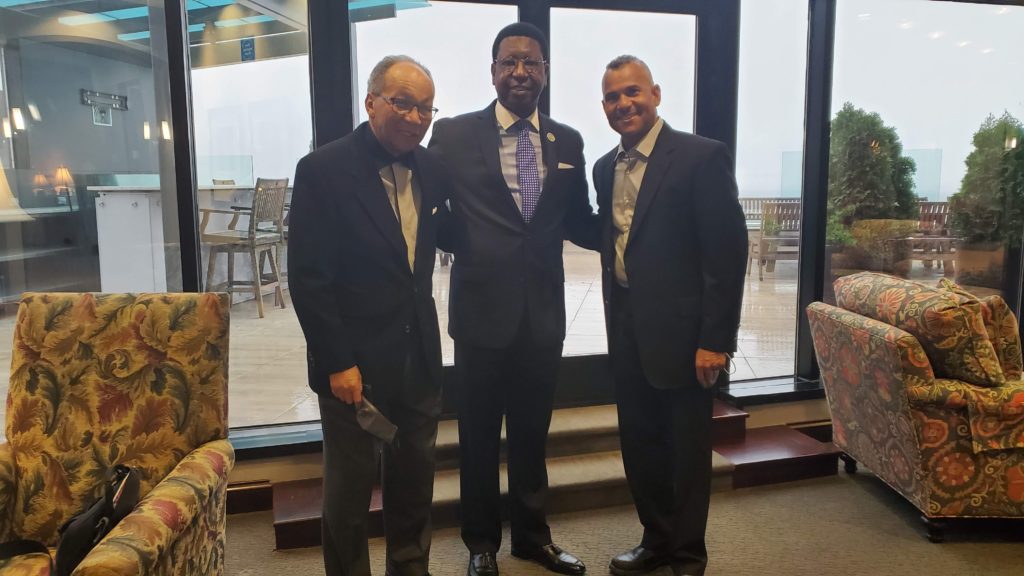Diversity and inclusion efforts have been at the forefront as hospice providers increasingly work to bridge racial gaps in access and equity to end-of-life and serious illness care. Heart and Soul Hospice in Nashville, Tenn., is among the providers working to improve hospice utilization amid underserved populations, with representation of a diverse staff and leadership team an element driving access.
Demographic disparities in access to and quality of hospice and palliative care have been persistent problems in the field for decades, with providers working to better reach underserved groups.
The Medicare Hospice Benefit was largely under-utilized by populations of color across the country in 2018. The National Hospice and Palliative Care Organization (NHPCO) reported that 82% of hospice patients nationwide in 2018 were white that year, while African American, Hispanic, Asian and Native American groups made up the remaining nearly 20% of beneficiaries.
Heart and Soul Hospice CEO David Turner, along with co-founders André Lee and Pastor Sandy McClain, saw a “clear and real need on the ground” to improve access and use of hospice in various communities across Tennessee, as well as nationwide.
“We don’t only serve Black people. That’s not what this is about,” said Turner. “This is about saying as an industry, ‘Let’s expand utilization.’ Rising the tide raises all ships, and so if we can do things in one community to get more people of any color to see that the hospice benefit is good and not a scary thing, then that benefits the hospice industry at large in any community.”
While movement in the hospice industry has made strides to better reach underserved populations, “there’s a long way to go still,” said Turner, who is also chief operating officer, administrator and owner of Detroit-based CNS Hospice. Historical impact and the current perceptions are not germane to any one area in the country, according to Turner.
Hospice utilization among Medicare decedents in the Volunteer State hit 43.7% in 2018, falling below the national average of 50.3% that year, according to NHPCO.
Heart and Soul Hospice is a home care hospice provider that serves the Nashville area’s of Davidson, Robertson and Rutherford counties. Around 19% of hospice patients in Nashville during 2019 were Black, while a little more than 70% were white, according to data from the Tennessee Department of Health. Larger gaps were seen between these groups in Robertson and Rutherford counties, the data indicated.
Nashville alone is becoming increasingly diverse, with African Americans representing more than a quarter, or 27.58%, of the overall population, according to a report from the World Population Review.
The hospice indicated in its application to obtain a certificate of need in Tennessee that it is a Black-owned organization aimed at increasing hospice utilization overall, with a focus on underserved minority populations such as African Americans. Hiring a diverse staff and having people of color at the leadership table of Heart and Soul Hospice was an important consideration in terms of representation, according to Turner, who stated that “the messenger is equally as important as the message” of hospice.
Much of the Nashville area contains “inner city pockets that are hugely untouched” by the reach of hospice and include large populations of various underserved groups such as Hispanic, Somali and Ethiopian populations, according to Keisha Mason, director of nursing of Heart and Soul Hospice.
“In this day and age, we’re still not getting it out to those populations that still need it, and they’re dying at the same rate as others,” said Mason. “We’re here to help them and walk them through this, because hospice is so foreign to them and that’s not been their hospice experience. Health disparities are happening from the womb to the tomb, and we need to change the way we talk about and look at hospice.”
Black and Hispanic populations are less likely to receive a hospice or palliative care referral than white patients according to recent data from the U.S. Agency for Healthcare Research and Quality.
Under-utilization is in part due to a lack of awareness and understanding about the scope and services included in hospice care — among patients and physicians alike, according to Mason. Expanding education and communication with patients and their families, clinicians and the community at large about hospice care is an important endeavor for providers, said Mason.
Building trust in and around underserved communities is another, according to Turner, who told Hospice News that gaining trust involves getting to know community members before they reach the need for end-of-life or serious illness care. Heart and Soul Hospice employs various trust-building strategies including establishing partnerships with community organizations, taking part in events at local schools and making connections with referring physicians and sources.
This all lends to “planting the seed” of awareness about hospice services, said Turner.
“There’s so much historical scar tissue, that we have to break it down one thing at a time — there’s no magic wand or secret in the sauce,” said Turner. “It’s more than just trying to get more people involved in your hospice program. It can’t just be about growing fences, it has to be about changing the culture of your organization, about who your leaders are and where you spend your time and marketing dollars. So many things go into this.”
Companies featured in this article:
CNS Hospice, Heart and Soul Hospice, National Hospice and Palliative Care Organization, World Population Review



